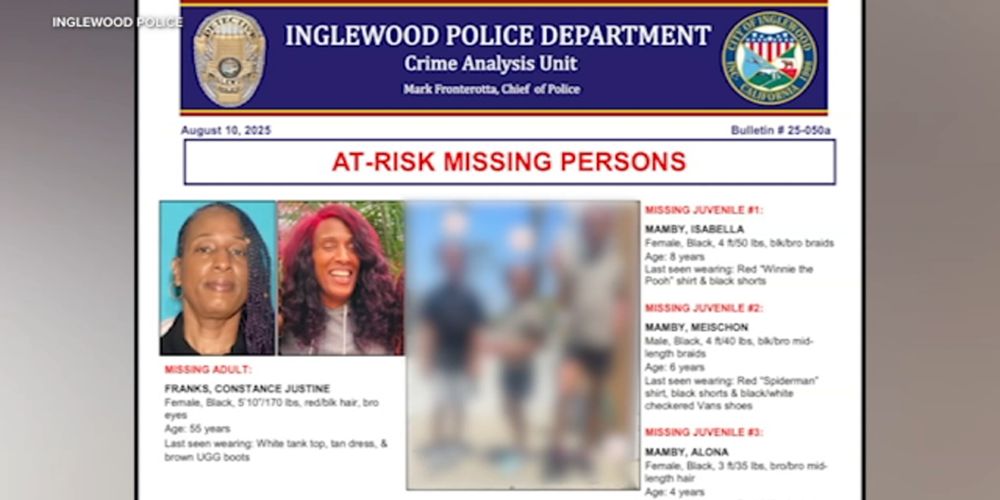In the ever-evolving landscape of self-defense laws across the United States, New Jersey stands out for its unique approach. The debate around “Stand Your Ground” laws remains heated nationally, raising questions about when and how individuals can protect themselves, their families, and their property. In 2025, understanding how these laws apply in New Jersey is vital for residents, law enforcement, and legal professionals alike. This article offers a thorough exploration of New Jersey’s self-defense regulations, the concept of Stand Your Ground, crime trends across its major cities, and practical implications for those living in the Garden State.
The Basics of Stand Your Ground Laws
Stand Your Ground laws, sometimes referred to as “no duty to retreat” laws, fundamentally alter longstanding principles of self-defense. Traditionally, individuals were required to attempt to avoid confrontation and retreat from danger if it was safe to do so before resorting to lethal force. Under Stand Your Ground statutes, this duty to retreat is lifted, granting individuals the right to use deadly force if they reasonably believe it is necessary to prevent imminent harm.
These laws vary significantly by state. While some have broadly adopted Stand Your Ground policies, others maintain the traditional “duty to retreat,” except in one’s own home—a principle commonly known as the Castle Doctrine.
New Jersey’s Approach to Self-Defense
New Jersey is distinctive in that, historically, it has not adopted a broad Stand Your Ground law. Instead, the state’s legal framework centers on a qualified right to self-defense, retaining the expectation that individuals avoid using deadly force whenever safely possible outside their own home.
The Castle Doctrine in New Jersey
Within your own home, New Jersey law embraces the Castle Doctrine. This principle means that if an intruder threatens you or a member of your household with deadly force, you are not required to retreat before defending yourself or others. The law presumes that residents have a reasonable belief of imminent harm in the face of a forced entry or attack within their dwelling. In these scenarios, homeowners are justified in using reasonable force, including deadly force, to protect themselves and those around them.
Duty to Retreat in Public
Outside the boundaries of your residence or specified property, New Jersey upholds a duty to retreat before resorting to deadly force. This means if you are threatened in public or at your workplace, you are generally expected to attempt to withdraw to safety—if doing so doesn’t put you at greater risk—before using force in self-defense.
Self-Defense and the Use of Force
New Jersey allows individuals to use force, including deadly force, in justified self-defense situations. For this defense to be accepted, the person must reasonably believe that such force is immediately necessary to protect themselves or someone else from unlawful force. The belief must be both honest and reasonable—meaning a typical, prudent person would see the threat as warranting that level of response.
Legislative Updates: Has Stand Your Ground Changed in 2025?
Calls to implement Stand Your Ground laws in New Jersey have grown louder over the years, reflecting national trends and high-profile cases in other states. However, by 2025, New Jersey’s core stance remains unchanged: there is no blanket Stand Your Ground law statewide. While the New Jersey Legislature has considered bills to alter this, shifting to a no-retreat standard beyond the home has not yet become law.
Residents should be aware that proposals to expand these rights may be discussed in the assembly, and some localities have advocated for reforms. For the most up-to-date legal realities, individuals should consult with legal professionals or monitor legislative updates directly from state authorities.
How Self-Defense Laws Apply in Real-Life Incidents
Home Invasions
In New Jersey cities like Newark, Jersey City, and Trenton, concern about home break-ins remains real. If someone unlawfully enters your home, and you reasonably believe they threaten imminent harm, you are legally allowed to defend yourself—even using lethal force if the threat level justifies it.
However, before escalating to deadly force, New Jersey law expects the homeowner to demand the intruder stop or leave if it can be done safely. If such a demand would place you or someone else in further danger, or if time does not permit it, this expectation is waived.
Public Altercations
If you are threatened with violence while walking the boardwalk in Atlantic City or commuting in Newark, your first legal obligation is to try to avoid conflict. You must attempt to retreat or remove yourself from harm’s way, so long as it is safe to do so. If escape is impossible or would place you at greater risk, using force—up to and including deadly force—may be justified.
Vehicle Attacks and Other Locations
Within your vehicle, the Castle Doctrine generally does not apply in New Jersey. If you are attacked while in your car in cities like Camden or Paterson, you are still expected to retreat if a safe avenue of escape exists. The expectations in a workplace or other private property outside the home follow similar logic.
The Role of Reasonable Belief and Immediate Necessity
The law places great emphasis on the concept of reasonable belief. The person using force must genuinely believe that immediate action is necessary to prevent harm, and this belief must be objectively reasonable. Prosecutors scrutinize these factors closely, considering the totality of the circumstances, including the nature of the threat, whether escape was possible, and how the person responded.
Crime Rates in New Jersey Cities: The Context for Self-Defense
Understanding where and why people may be more likely to confront crime can provide important context.
Statewide Crime Overview
New Jersey has achieved one of the lowest violent crime rates in the United States as of 2025, ranking among the safest states nationwide. Still, crime remains a concern in some urban centers. Cities exhibit wide disparity in crime rates, reflecting differences in population density, economic vigor, and law enforcement resources.
Violent Crime Rates by City
| City | Violent Crime Rate (per 10,000 residents) | Property Crime Rate | Overall Crime Rate |
|---|---|---|---|
| Newark | 73.3 | 201.0 | 274.3 |
| Jersey City | 45.6 | 177.0 | 222.6 |
| Paterson | 73.2 | 242.6 | 315.9 |
| Elizabeth | 69.5 | 310.0 | 379.5 |
| Trenton | 116.2 | 294.6 | 410.7 |
| Camden | 163.8 | 303.4 | 467.2 |
| Lakewood Township | 12.5 | 75.7 | 88.2 |
| Edison Township | 11.8 | 113.2 | 125.1 |
| Woodbridge Township | 11.2 | 154.0 | 165.2 |
| Cherry Hill Township | 13.0 | 287.1 | 300.1 |
Camden and Trenton have the highest rates of violent and property crime among major cities. In contrast, Lakewood Township’s low numbers have earned it a place among the nation’s safest cities in 2025.
Most Dangerous and Safest Cities
-
Camden: Frequently listed as the most dangerous city in New Jersey, Camden residents face significant risks; violent and property crime rates outpace all other major cities.
-
Atlantic City: While a tourist hotspot, Atlantic City experiences a high rate of both property crimes (such as theft and car break-ins) and violent offenses.
-
Lakewood Township: Named among the safest cities, with dramatically lower crime rates, making it an attractive prospect for families and retirees.
Emerging Trends and Public Perceptions
Although the statewide violent crime rate remains impressively low, certain urban corridors continue to report elevated offenses. Economic challenges, overcrowding, and resource limitations in cities like Camden, Paterson, and Atlantic City contribute to these trends.
By contrast, suburban and rural communities—like those found in Morris, Somerset, and Monmouth counties—tend to record far fewer incidents, reinforcing public perceptions of safety.
Practical Implications for Residents
What to Do If You Are Threatened
Understanding your rights and responsibilities is key to making the safest and legally sound decisions in self-defense scenarios:
-
At home: If you face a home invasion, you have broad justification for using force—but courts will examine whether you made a reasonable attempt to warn the intruder or if this was impractical.
-
In public: Always seek to avoid conflict when possible. Attempt retreat, call for help, and use force only if absolutely necessary to prevent imminent harm.
-
Document everything: Should an incident occur, document your actions and the events as quickly as possible. Statements, physical evidence, and witness accounts will all be critical later.
When Self-Defense Becomes Criminal
Not every claim of self-defense will succeed in court. Merely claiming you felt threatened does not automatically grant you legal protection. Prosecutors will scrutinize your actions, your opportunity to retreat, and whether the force used matched the threat. In cases where excessive or preemptive force is used, individuals may face charges including aggravated assault or homicide.
Consulting With Legal Professionals
Given the complexity of self-defense claims in New Jersey, consulting with an attorney experienced in criminal law is critical if you are involved in or accused after a self-defense incident.
Comparing New Jersey to Other States
Stand Your Ground States vs. New Jersey
While many states have enacted sweeping Stand Your Ground laws, New Jersey retains its duty to retreat outside the home. This places the state at odds with places like Florida or Texas, where individuals can generally use deadly force in public without retreat if they reasonably perceive a deadly threat.
This distinction impacts both legal outcomes and everyday behavior. Residents in Stand Your Ground states may feel more empowered to confront threats forcefully, while in New Jersey, the expectation remains that de-escalation or retreat is the first line of defense.
Impact of Laws on Crime Rates
Research into Stand Your Ground statutes suggests mixed or negative correlations with public safety, with some analyses linking these laws to increases in firearm-related homicides. New Jersey’s lower rates of violent crime, despite its more restrictive self-defense laws, suggest that maintaining a duty to retreat has not increased resident vulnerability.
Noteworthy Legal Cases in New Jersey
Over the past decade, New Jersey’s courts have handled several high-profile cases testing the outer limits of self-defense. While details differ across incidents, certain principles emerge:
-
Reasonable belief is always required; acting on vague fears or misunderstandings is not protected.
-
Proportional force is necessary. For example, using deadly force to repel a non-deadly threat, such as a fistfight, is almost always considered excessive.
-
No provocation. A person who initiates a conflict cannot then claim full legal protection under self-defense laws unless they have attempted to withdraw from the confrontation and communicated this intent.
Community Safety and Prevention Initiatives
Understanding the law is only part of the equation. Throughout New Jersey, police departments, city governments, and grassroots organizations are investing in violence prevention, improved emergency response, and community education.
-
Camden: High crime rates have prompted investments in community policing and neighborhood watch programs.
-
Jersey City and Newark: Both cities have prioritized improving street lighting, surveillance (especially near transit hubs), and after-school programs to deter juvenile crime.
-
Lakewood Township and Suburban Towns: Continued recognition as safe communities is bolstered by active citizen participation and efficient law enforcement coordination.
Advice for Residents and Visitors
-
Know where you are: Awareness of local crime trends and public safety initiatives can help you make informed decisions, especially in higher-risk neighborhoods.
-
Understand your rights: Regularly review New Jersey’s self-defense laws, as legislative proposals are regularly debated and may impact your future rights.
-
Report suspicious activity: Police maximize public safety through community input and quick reporting of criminal or suspicious conduct.
Conclusion
New Jersey in 2025 stands as a state that carefully balances the right to self-defense with the imperative of public safety. With no comprehensive Stand Your Ground law, residents must be prepared to retreat from conflict in public, except when in their home, where the Castle Doctrine applies. The low statewide violent crime rate underscores the effectiveness of these regulations, even as some cities struggle with higher crime levels.
Being well-versed in the law—knowing when force is justified, what qualifies as reasonable belief, and how the law will treat your actions—is indispensable. For those living in, working in, or visiting New Jersey, a clear understanding of these principles is not just an academic exercise; it is essential for protecting both your safety and your freedom.











Leave a Comment